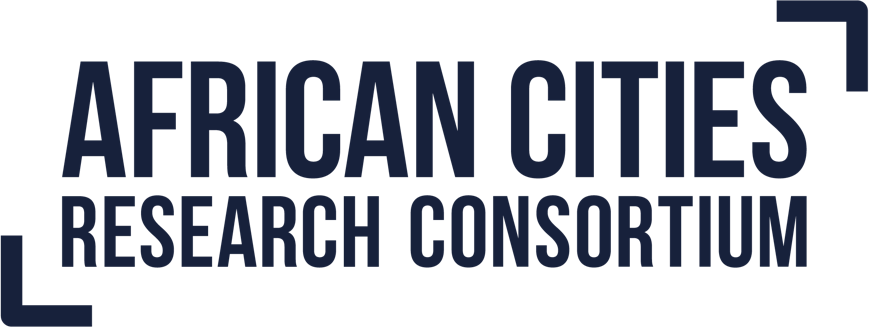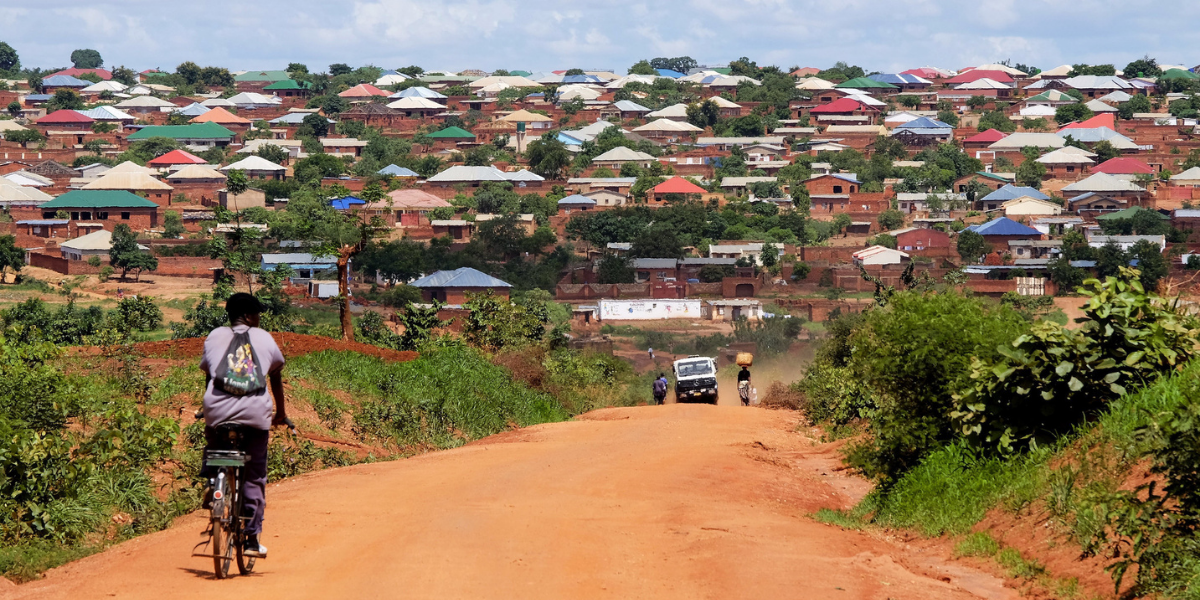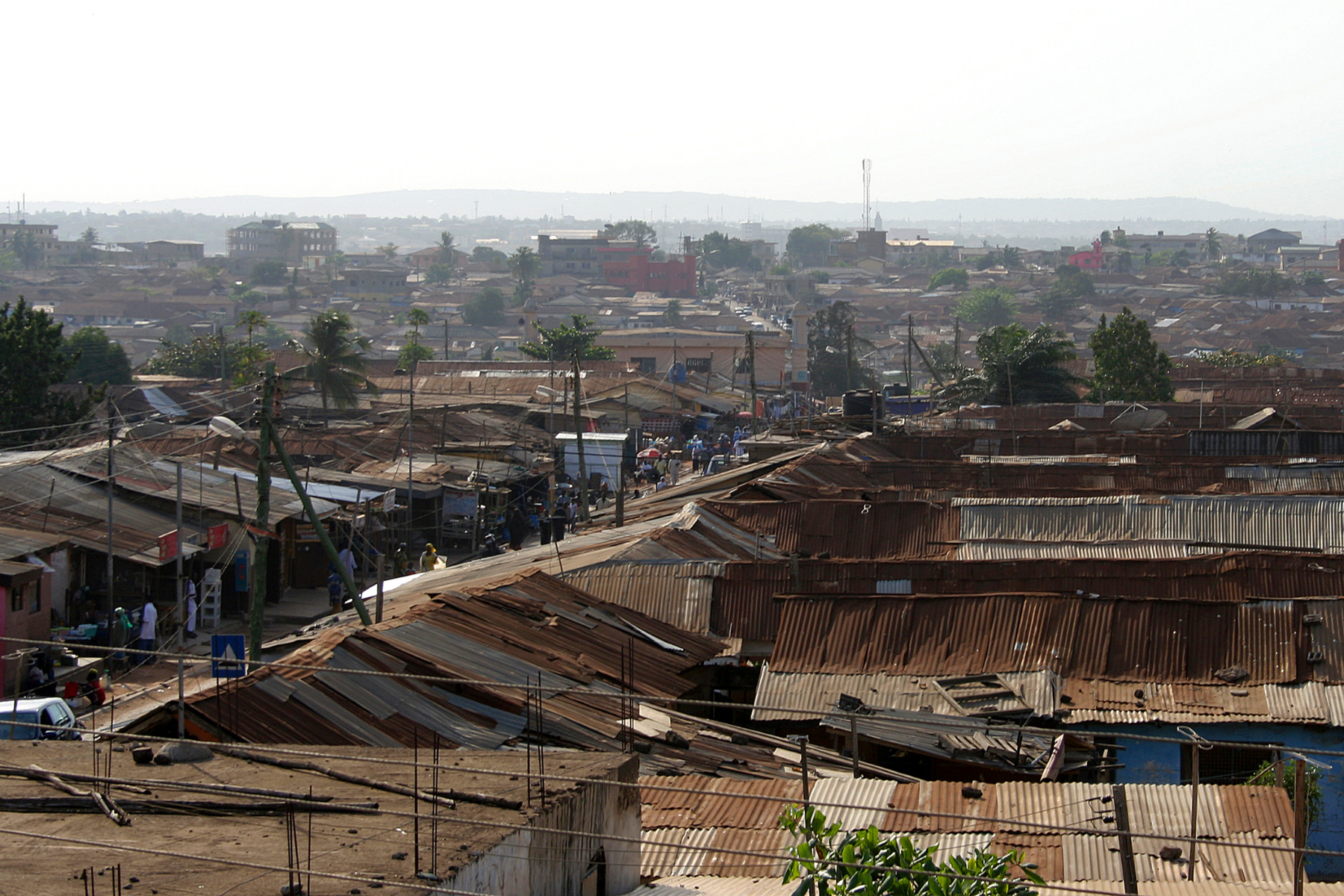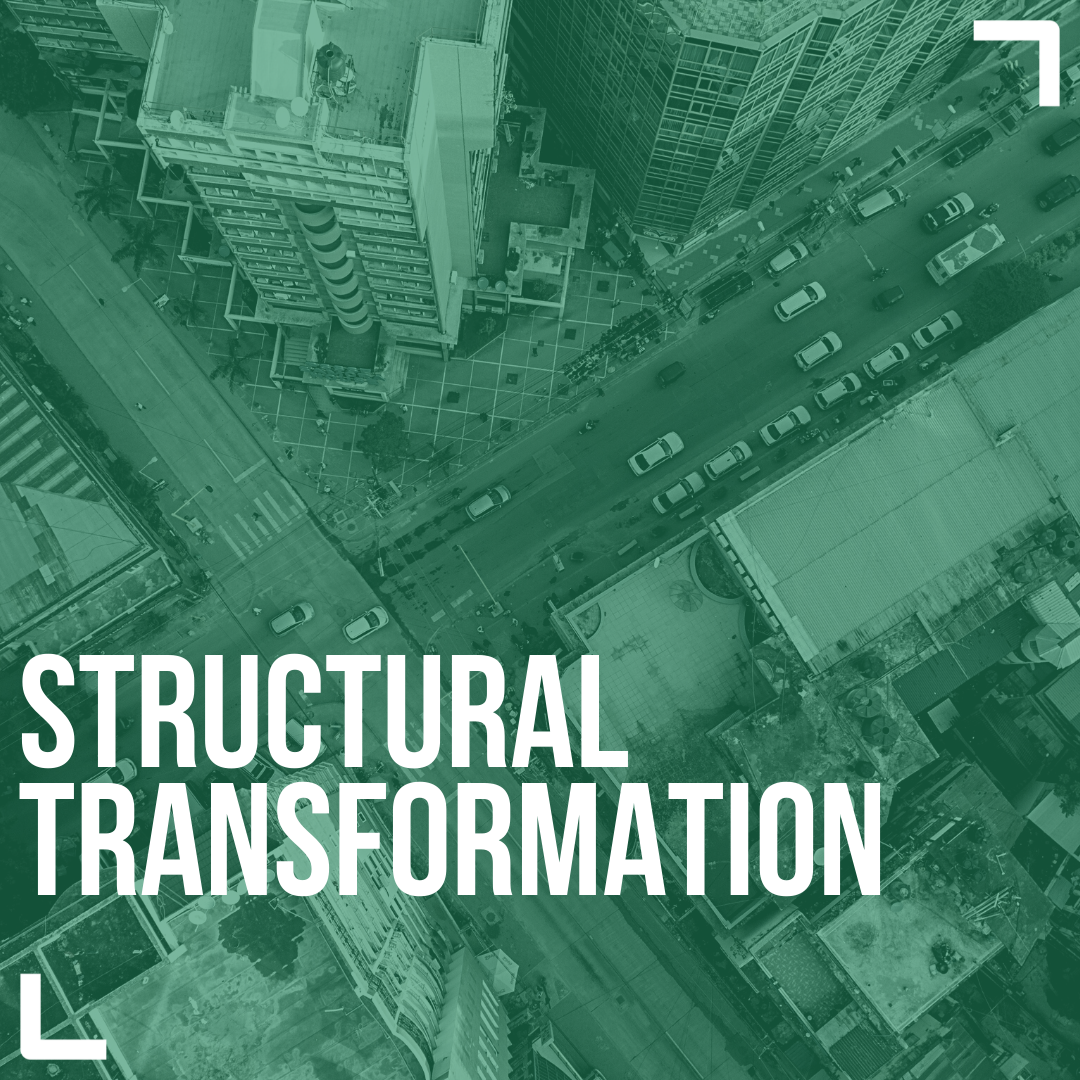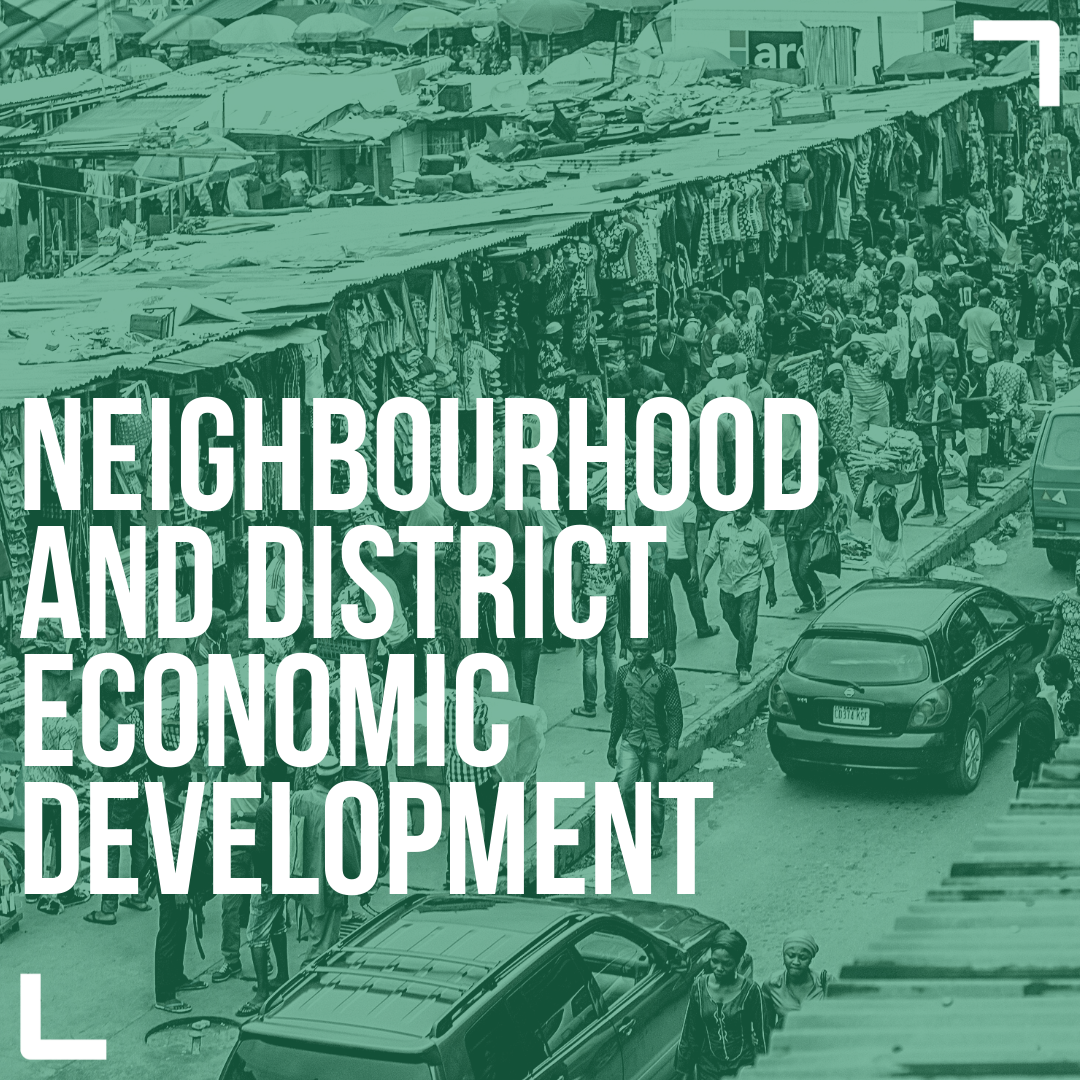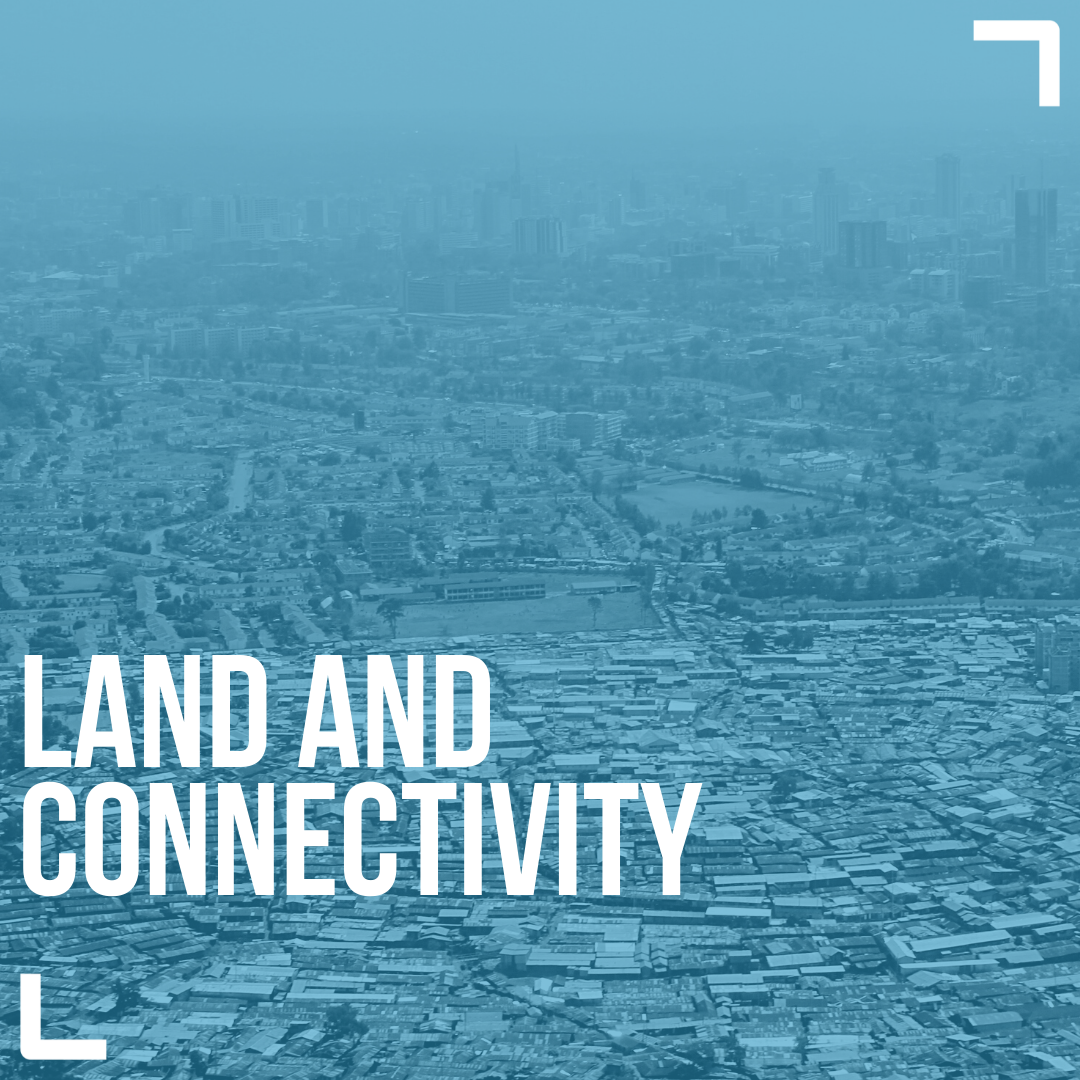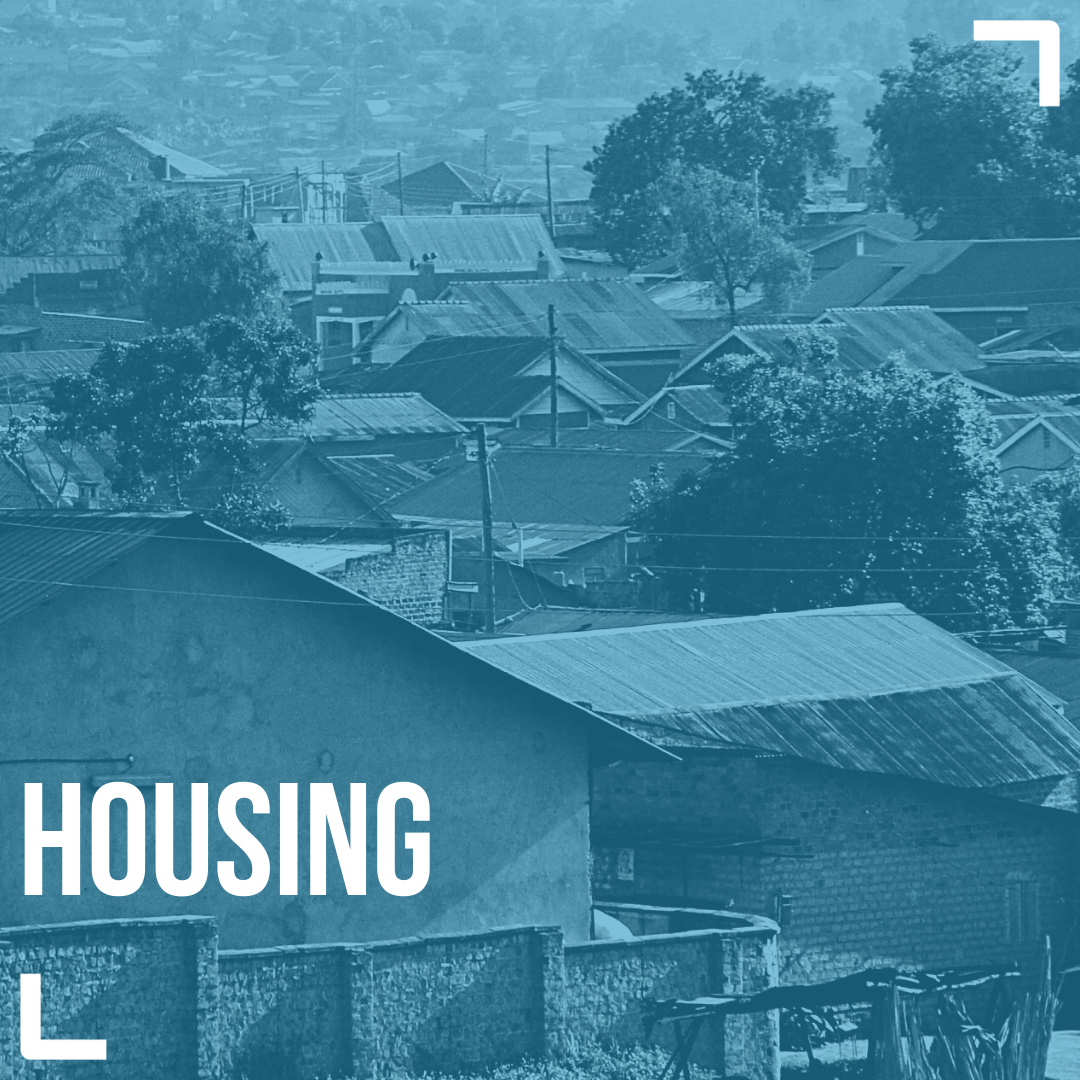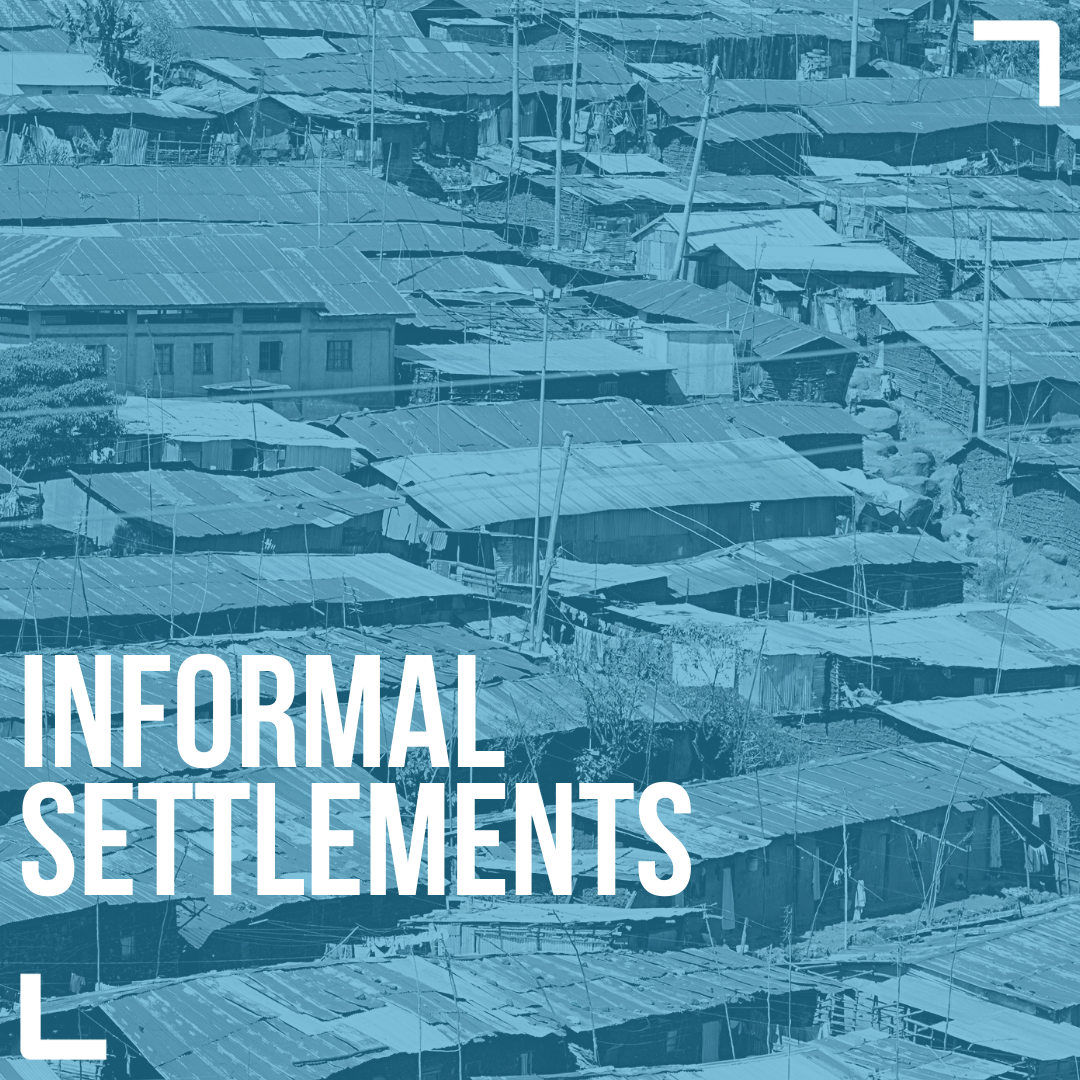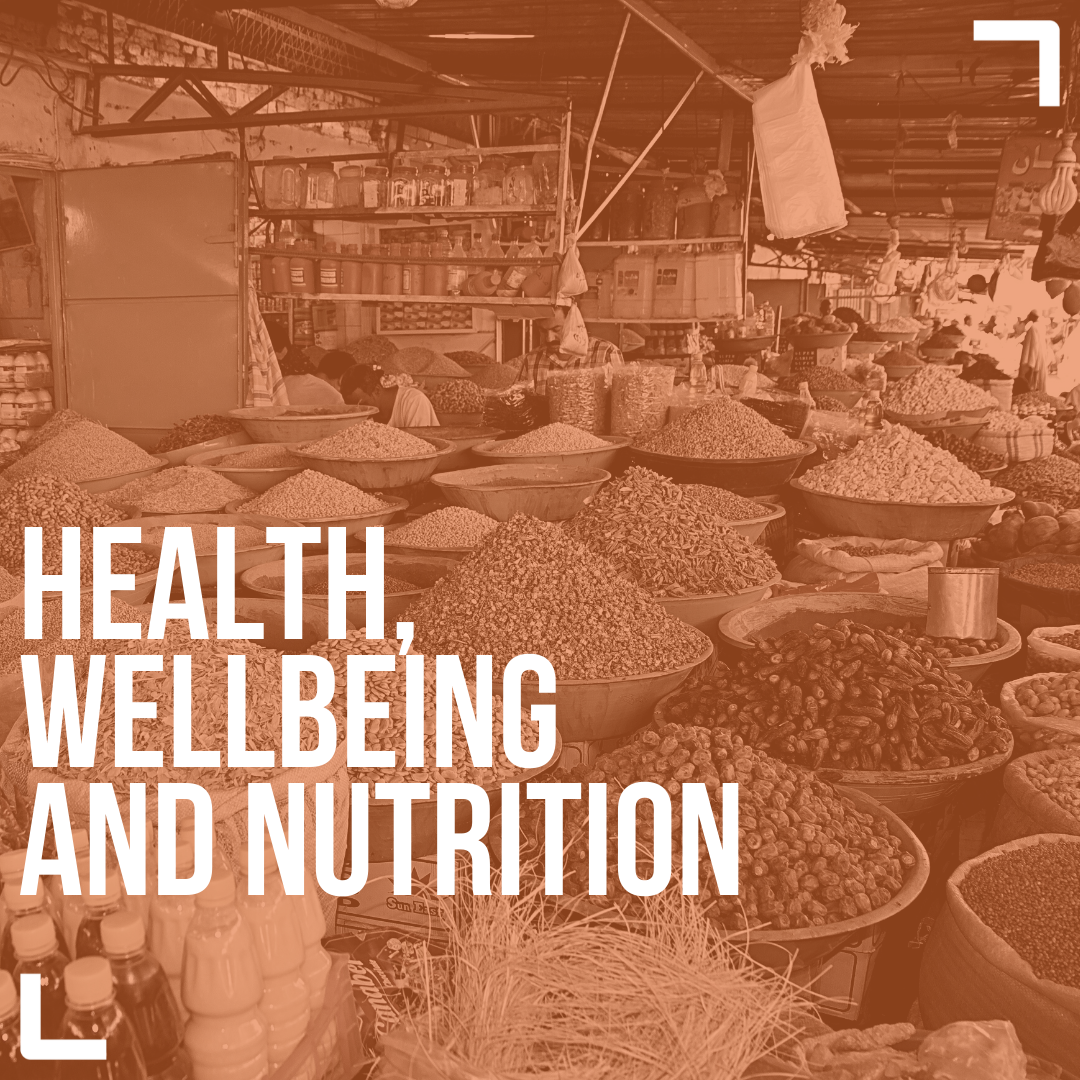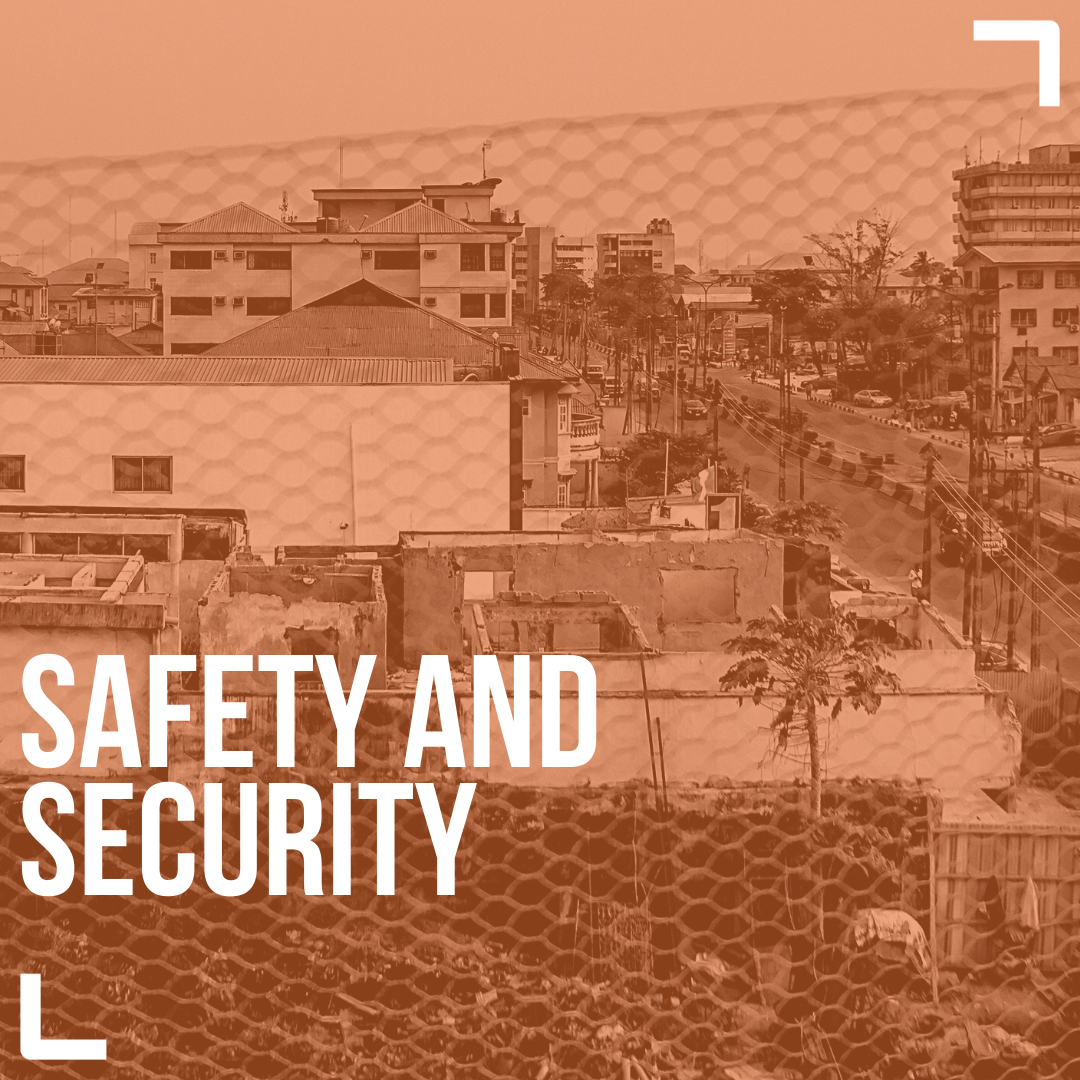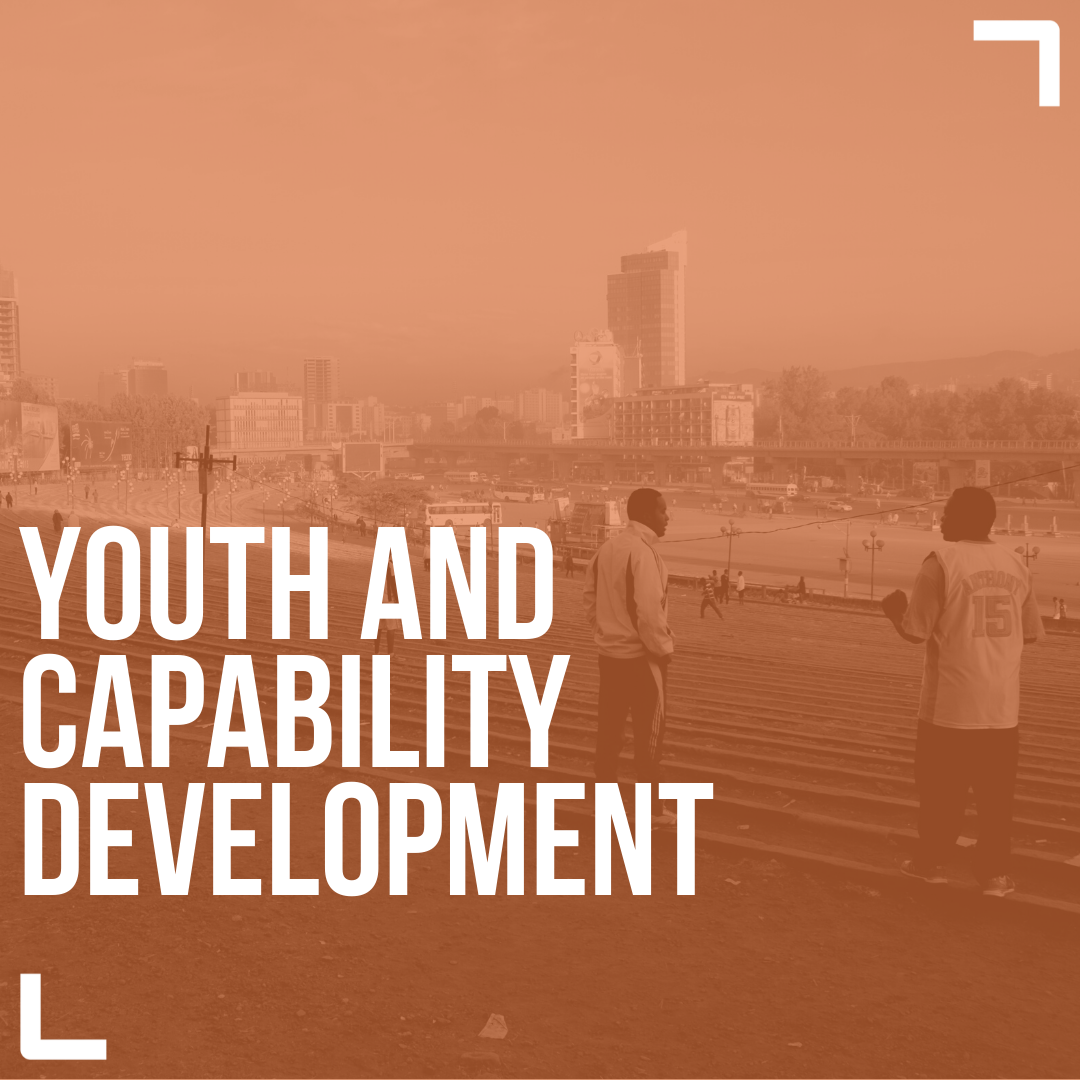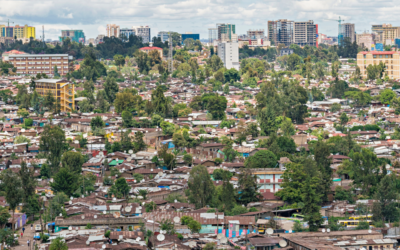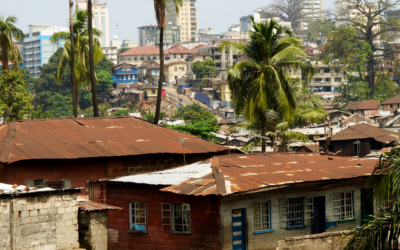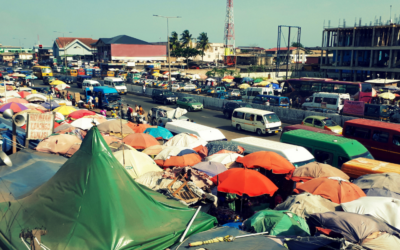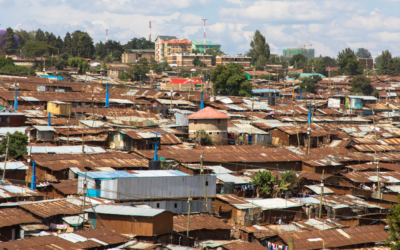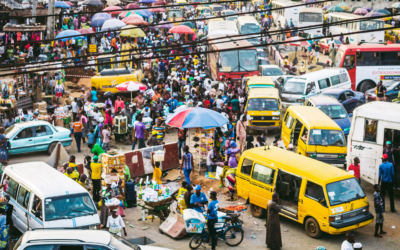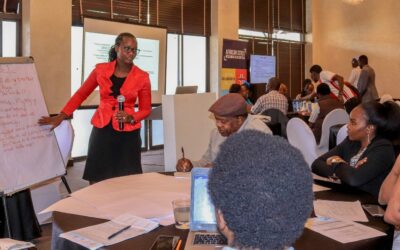Research approach
Our research approach integrates systems thinking with rigorous political analysis, to provide new insights that enable African cities to be more productive, equitable and inclusive.
Structure
Our research is structured under four key themes, which will be explored over three sequential phases of work, with uptake running throughout:
inception > foundation > implementation
>> uptake >>
Theme 1: Rethinking African cities – concepts and theory
We’ll build on the applied political economy analysis approach – developed by The University of Manchester’s Effective States and Inclusive Development research centre – to combine ‘political settlements’ and ‘city of systems’ analyses into a coherent framework.
Theme 2: Understanding cities as systems
We’ll employ this framework to understand systemic challenges in 13 cities, enabling us to work iteratively across multiple levels – from everyday politics and sub-city systems, through city-level politics, to the national political settlement and transnational context that African cities are situated in.
This framework will provide new insights into the nature and causes of complex urban development problems, and their potential solutions, across our set of cities. Closely engaging with key policy actors and practitioners around these insights, we will then decide which cities and priority complex problems to focus on in the next theme.
Theme 3: Tackling priority complex problems to unlock urban systems
Building on the analysis from the first two themes, we will investigate and identify solutions to complex priority problems within five to eight cities, selected from the initial 13. By securing the required political commitment for reform in this sub-set of cities, we will pioneer new approaches to urban programming while taking into account how these can trigger more comprehensive processes of urban change.
Theme 4: Research uptake, including pathways to impact and synthesis
Running throughout the project timeline, this theme is focused on translating research findings into impact by engaging a wide range of actors within policy, practice and political spaces.
Research questions
To help unlock development potential in the cities we’re working in, we will seek to answer the following questions:
> What are the priority problems that prevent African cities fulfilling their inclusive development potential?
> How are these problems related to the complex interactions among a city’s systems and the domains of actors, ideas and power that coalesce – or fail to coalesce – around them?
> How are these domains related to a city’s politics and/or with national political settlements, or their absence?
> And how can the answers to these questions improve efforts to make African cities more productive, equitable and inclusive?
Conceptual framework
Our conceptual framework consists of three main elements: political settlements analysis, cities of systems, and urban development domains. The following diagram shows how these components relate to each other.
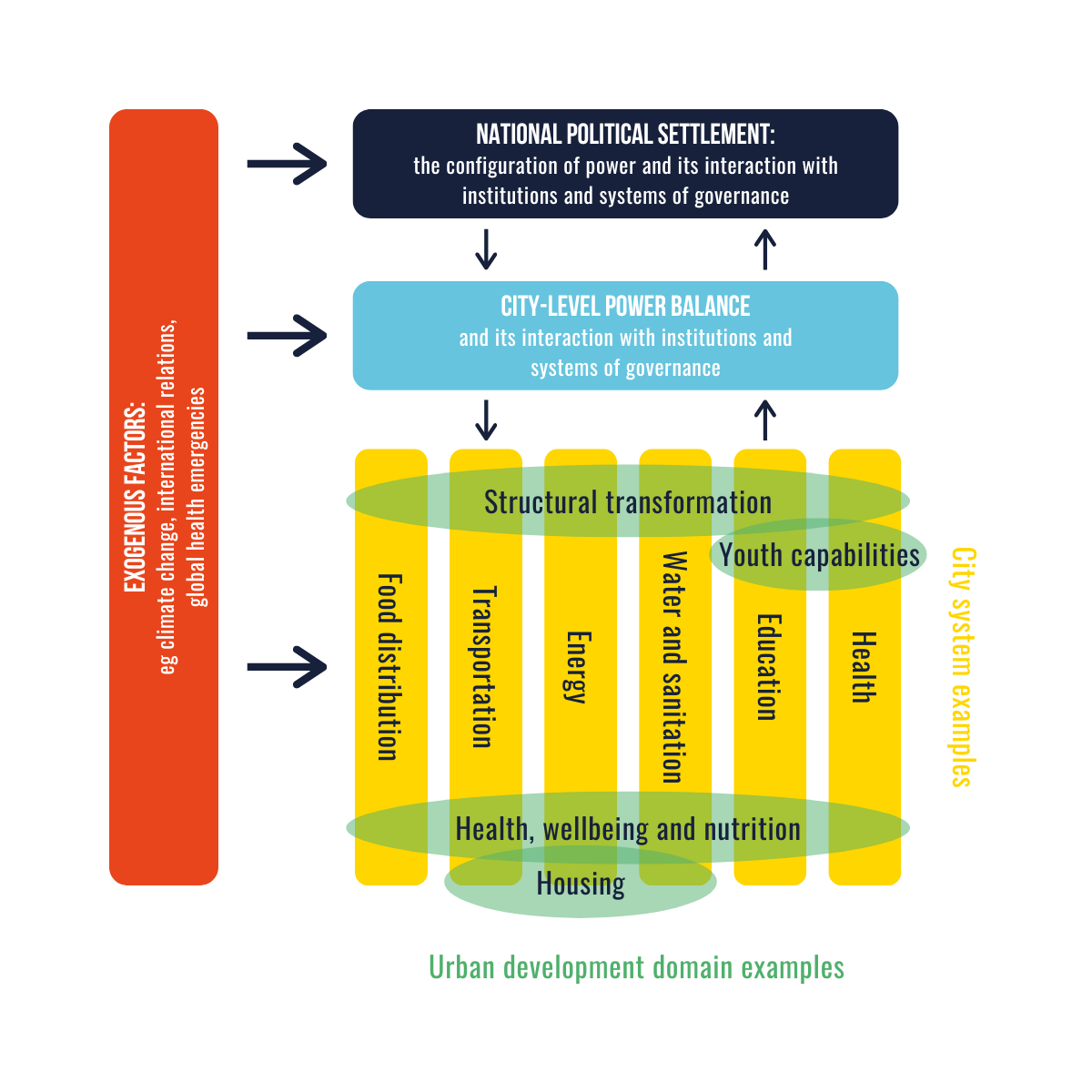
1. Political settlements analysis
This offers us a way to understand the political economy of African cities. The notion of a political settlement goes beyond formal ideas of governance, to uncover the underlying forms of power and politics shaping which institutions emerge and how they function in practice.
Learn more about the political economy analysis approach developed by The University of Manchester’s Effective States and Inclusive Development research centre here.
2. Cities of systems
We’ll use a systems approach to emphasise the significance of a city’s materiality – how it is physically constructed and maintained by flows of energy and resources – and will go beyond this to include essential social systems, including education and health.
Our research will examine how systems function and how these processes shape the uneven allocation of goods and services. Given the extent to which many complex problems in African cities involve multiple city systems interacting with each other, we will capture their interrelated nature with our third concept of ‘domains’.
3. Urban development domains
We define these as fields of power, policy and practice that are relevant to solving specific urban problems. Domains are constituted by multiple systems and actors – political, bureaucratic, professional and popular – that seek to claim control, influence and rights over a particular field, with the objective of addressing specific challenges.
They also play particular and diverse roles in sustaining the wider balance of power at both city and national level – providing rents and/or legitimacy to governing elites in ways that shape how authority is contested within domains, and whose interests and ideas predominate.
Domains
We will explore eight different urban development domains across a selected range of our focus cities:
